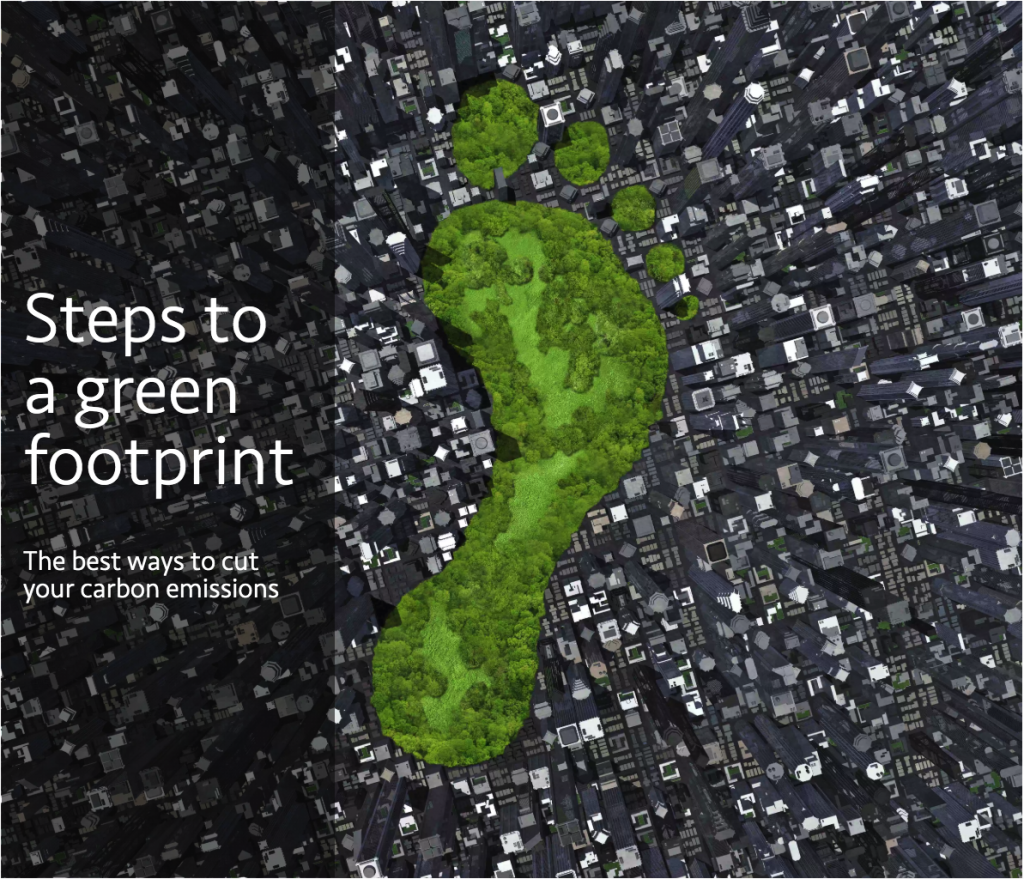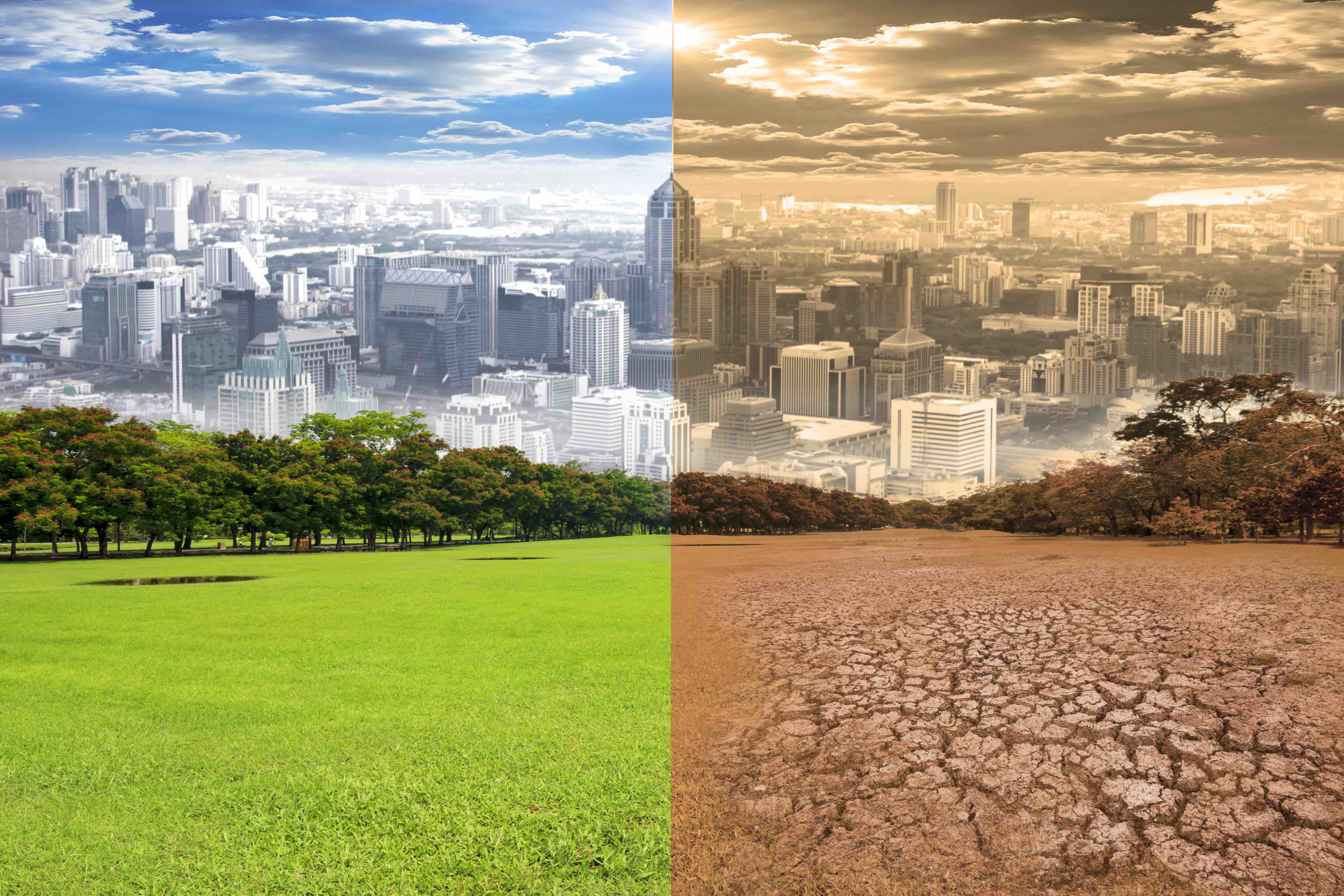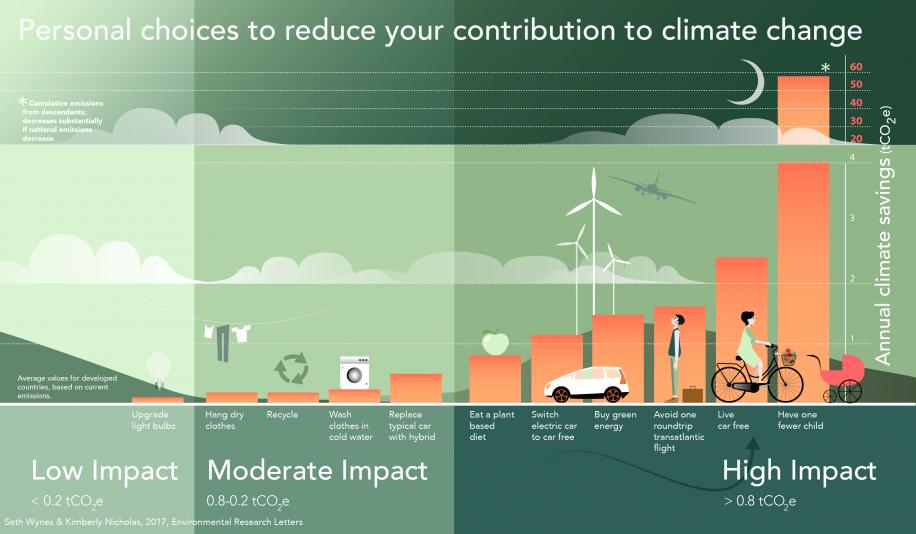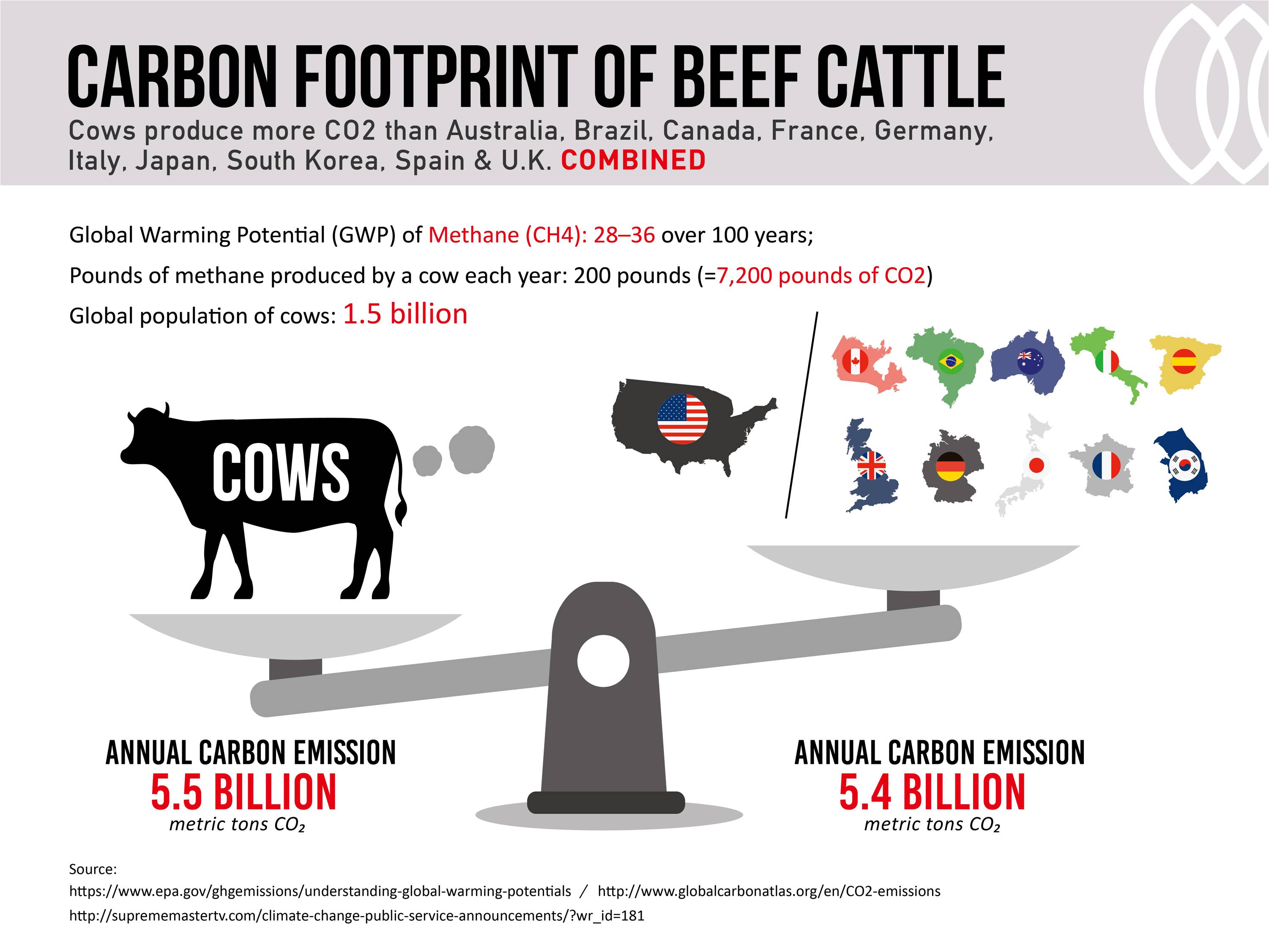
Global temperatures are rising.
In an alarming new report, the U.N’s Intergovernmental Panel on Climate Change warns that we have roughly twelve years to roll back the proverbial tide on human industrial activities before their consequences lead to changes in actual tides capable of wreaking havoc upon coastal cities.
But climate change’s brutal warpath may surge far further inland than the city gates of seaside towns. The panel’s sobering report predicts that by 2040, we may start experiencing climate-related poverty, floods, droughts and famine.

Our carbon footprint is steadily stomping out any chances that our children and grandchildren will inherit an Earth worth inhabiting.
There is, however, a silver lining to this mushroom cloud, and that’s that – much like our poor, porous ozone layer – our fate isn’t sealed just yet.
Scientists believe if we can curb the increases in global temperatures so that they don’t surpass an average of 1.5 degrees Celsius, the impact of climate change’s catastrophic blow will be significantly less.
What can be done?
It’s incumbent upon all of the planet’s inhabitants to band together and work proactively towards a sustainable future. If we are to have any hope of continuing our reign as the dominant species on the planet, we must reign in the excesses that compromise the long-term availability of the conditions we need in order to thrive.This raises the question, however: What steps should individuals take in their daily lives to reduce the upward momentum of global temperatures? Though it sounds like a tall order with which to be taxed, there are a multitude of measures ordinary people can engage in to affect an extraordinary improvement in our planet’s climatological state. After all, this collision course with disaster was not triggered by one person, but rather, by a mosaic of poor choices coming together to form a bleak image for our species’ future. Consequently, it will not be undone by individuals, but by all of us working collaboratively. Let’s look at some of the highest impact measures you can take to help pump the brakes on climate change. Some are easier than others, but all of them contribute towards a future in which Atlanta isn’t known as a coastal town.

#1 Have Less Children
Lund University released some controversial findings in 2016 when they announced that having a child is one of the most significantly impactful environmental actions a person can take. According to their research, having one less child diminishes a family’s output of greenhouse gas emissions by a whopping 58.6 tonnes!The scientists noted that even having one less kid would allow a family to enjoy the same levels of emissions reductions as what we would obtain from the combined efforts of 684 teenagers opting to recycle for as long as they live.This is not to say don’t have kids. We love kids, we need kids, we all start as kids! But to ensure a healthier, cooler future for our kids, the world population as a whole needs to consider how its growth rate can be sustainable with finite resources.
#2 Travel fuel efficiently
In addition to apple pie, the other American icon should be the car. The United States is home to more vehicles than any other country in the world, which is not a distinction to necessarily be proud of. All those fossil fuel hungry engines add up to make transportation the country’s largest source of carbon emissions, more than electric power, industrial, residential, and commercial sectors. The threat from this goes beyond global warming. Tailpipe emissions contain toxic particulates responsible for causing more deaths than car accidents according to some estimates. One study from NASA and Duke found that reducing transportation pollution over the next decade could avoid 120,000 premature deaths.If you want to make the biggest impact to fixing the problem, then that means living without a car, as many do living in cities with public transportation. Such communities reduce carbon emissions by 37 million metric tons a year–an amount about equal to the emissions consumed by the electricity of every household in New York City, Washington, D.C., Atlanta, Denver, and Los Angeles combined!But if giving up your car is not a practical solution, you can still make a difference by choosing fuel efficient cars. Simply switching from a vehicle that gets 20-mpg to one with 25-mpg will reduce your greenhouse emissions by 1.7 tons annually. Or if you want a financial incentive, a 30-mpg car will save you about $3000 in fuel costs compared to a gas guzzler at 20mpg.Air travel is also a big carbon emission offender with the massive jet fuel consumed by about 10000 planes in the air at any given time. Reducing air travel of course would have the biggest impact to reducing that number, but if you must travel there are ways to still make a difference. Since take-off and landings are the most fuel-intensive parts of a flight, choosing direct flights will significantly reduce the carbon footprint of your trip.
#3 Reduce the meat
According to the findings of the United Nations’ Food and Agriculture Organization, “…The livestock sector is a major stressor on many ecosystems and on the planet as a whole,” and, “…it is one of the largest sources of greenhouse gases and one of the leading causal factors in the loss of biodiversity, while in developed and emerging countries it is perhaps the leading source of water pollution.”So why are climate scientists having a cow over people choosing to have cows? Here’s why:

As illustrated above, the carbon footprint of cows is larger than the total carbon emissions of the entire USA, or the sum of ten industrial counties (Australia, Brazil, Canada, France, Germany, Italy, Japan, South Korea, Spain and the United Kingdom).
While ranching doesn’t generally conjure up images of cramped industrial complexes and billowing smoke stacks traditionally associated with greenhouse gas emissions, their pastures are far from green. The reason the bovine carbon footprint–or rather, hoofprint–is so big results from the animal’s high volume of flatulence that’s full of methane. Yes, cows fart flammable gas.

But it’s not fireballs that are the reason we should be fearful of cow farts. Their methane production is responsible for no less than over a fifth of the planet’s methane load. Methane is particularly insidious because it contributes to the greenhouse effect much more potently than other gases. Specifically, it has a Global Warming Potential 28-36 times stronger than that of carbon dioxide.
So if we don’t want our planet to be cooked well done, then asking for less beef would be better than asking, “Where’s the beef?”
#4 Go solar
If you’re looking to save the planet without having to change your diet or give one of your children up for adoption, one easy and cost-effective measure you can take is to phase-out coal-based electricity, and source your household’s energy from clean, renewable, solar energy instead.In the past, the primary obstacle to getting off the grid has been the prohibitive upfront costs of purchasing a solar array. However, Neeeco now offers a new leasing option that allows you to have your home outfitted with solar panels at no cost, and the energy from these panels to be purchased by your household at a low, locked-in rate that will never change and will always be a fraction of the cost of traditional utility expenses. Most importantly, by switching to solar, you’ll divest from conventional sources of electricity that contaminate the atmosphere with not only greenhouse gases, but heavy metals such as Mercury, as well. With over 64% of U.S power plants using fossil fuels, coal, and natural gas as their primary fuel, it’s imperative that we turn to the sun for a brighter tomorrow.
Call (781) 514-5882 or contact us to get started with a no-cost Mass Save® home energy assessment.
